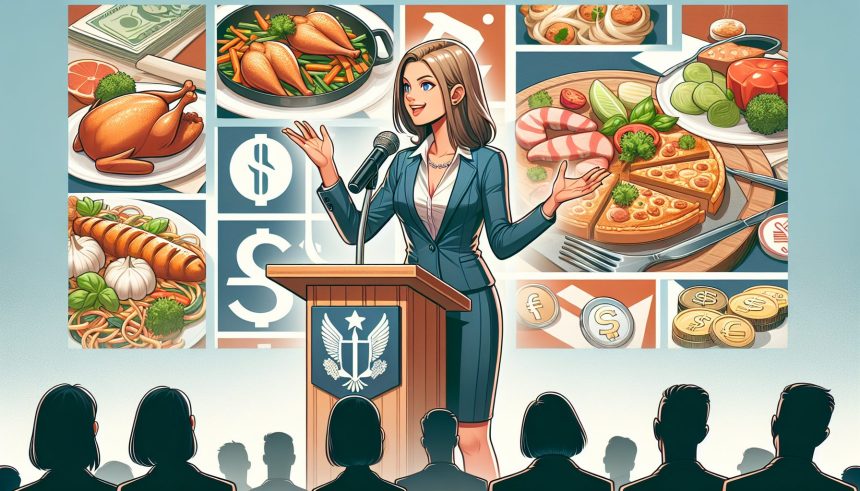Mayor of Greensboro, North Carolina, Nancy Vaughan, has proposed a potential ‘cooked food tax’ in her recent “City Status” speech. Aimed at boosting the city’s renown as an entertainment and tourism hub, this tax has become a buzzworthy topic within the city.
The proposed tax is designed to substantially contribute to the city’s revenue, enabling the execution of projects to enhance Greensboro’s attractions and amenities. However, the tax has generated mixed reactions. While some residents see its potential for economic boost, others worry about its impact on citizens, particularly those on tight budgets.
In her speech, Vaughan acknowledged these concerns, assuring transparency in the tax’s implementation, and emphasizing the primary goal to enhance Greensboro’s tourism appeal. The Mayor remains optimistic about the long-term benefits of the tax, anticipating significant funding for future urban development projects.
Meanwhile, local businesses are apprehensive. Sam Helmi, owner of Oakcrest Family Restaurant, expressed his fears of the tax’s potential impact on customer buying power and consequently, his restaurant’s revenue. Helmi, and several local business owners, have started considerations to mitigate the potential effects of this tax on their operations.
The key clientele of restaurants like Oakrest are senior citizens, often living on a fixed income.
Mayor’s proposed cooked food tax controversy
Helmi emphasizes the need for constructive dialogue with government representatives and policymakers to obviate the potential adverse impacts on small businesses.
The proposed ‘cooked food tax’ essentially involves a 1% levy increase which would steadily boost the economy. However, restaurants and food establishments might have to adjust their pricing policies to accommodate the increased cost. Despite some objections, proponents of the tax argue that a thriving city infrastructure would eventually benefit the business sector.
If implemented countywide, the tax could generate at least $20 million in revenue annually. Vaughan stated that this tax is not just to sustain the present, but to propel the community to extraordinary heights. Vaughan’s proposal, suggesting this tax as a step towards progress rather than an additional burden, was met with a mixed reaction.
While Vaughan remains optimistic about the plan, entrepreneurs like Helmi remain skeptical, calling for alternatives that would not impact businesses or their customers negatively. Helmi further emphasizes the need for transparency in managing such transformations.
Despite the skepticism, Vaughan showed optimism, saying, “Let us not be afraid of change, but embrace it for a brighter future.” Smoothing out fears, she stated that the proposed tax, although formidable, would be a significant leap forward for the county.
Helmi underscores his willingness to embrace changes beneficial for all, but advocates for an approach that balances financial viability and customer tolerance. His insight highlights the need for thorough planning and customer communication in an era where small price changes can trigger strong reactions. Helmi’s experience serves as a cautionary tale for other businesses considering similar measures.







